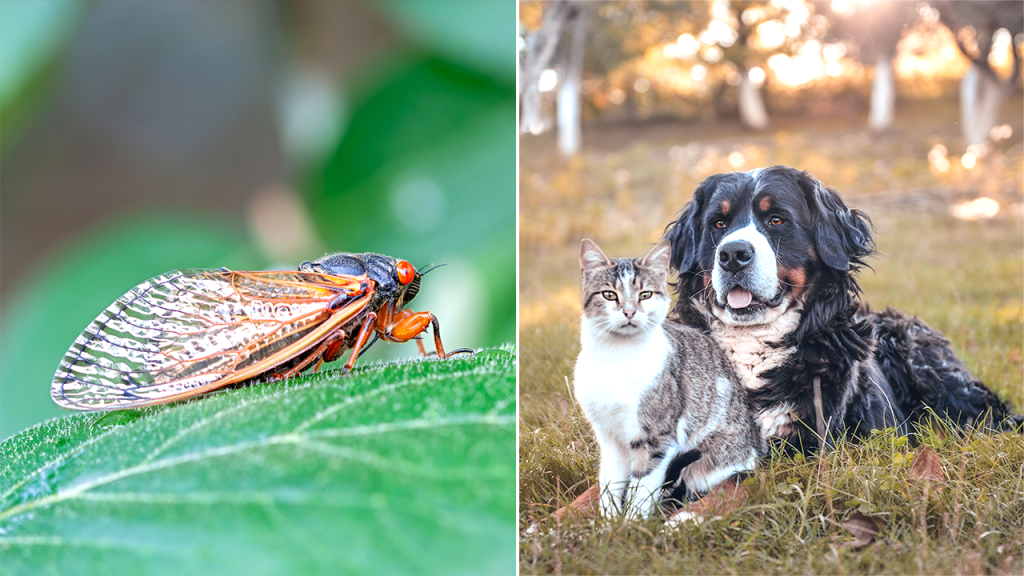The U.S. is currently experiencing a resurgence of cicadas, with two broods expected to reappear in multiple states by the trillions. While cicadas swarm during this season, leaving their hard exoskeletons behind, pet owners may be concerned about the potential risks to their pets. According to Amanda Fredal, a licensed veterinary technician in Georgia, cicadas are generally not considered toxic to pets. However, consuming a large quantity of cicadas or having an allergy to them could lead to gastrointestinal upset or allergic reactions in pets. It is important for pet owners to monitor their pets for any symptoms of distress and consult a veterinarian if they have concerns.
In addition to gastrointestinal upset and allergic reactions, pets may exhibit symptoms such as vomiting, diarrhea, abdominal pain, decreased appetite, itching, redness, swelling, hives, difficulty breathing, lethargy, weakness, coughing, wheezing, seizures, and disorientation if they have a severe reaction to cicadas. Fredal advised pet owners to closely monitor their pets for unusual symptoms if they ingest a cicada, regardless of allergies or signs of distress. If pets show symptoms such as vomiting, diarrhea, lethargy, or difficulty breathing, it is important to contact a veterinarian for guidance. To prevent pets from consuming cicadas, Fredal recommended supervising pets closely while outdoors, using deterrents or barriers to keep cicadas out of reach, and providing alternative enrichment activities such as frozen treats, snuffle mats, lick mats, or other pet-friendly games.
When it comes to preventing access to cicadas in the yard, Fredal suggested trimming back vegetation where cicadas congregate or using netting to cover plants. Keeping the lawn short, using insect repellents or traps designed to deter cicadas, and supervising pets outdoors to discourage scavenging are also recommended. Additionally, pets with sensitive stomachs, dietary restrictions, or shellfish allergies could be more sensitive to cicadas than others. Other animals such as poultry, waterfowl, reptiles, fish, and exotic mammals are likely to consume cicadas as a source of high protein. Ryan Fowley, a pest removal expert at Excel Pest Services in New Jersey, described cicadas as relatively harmless, noting that they do not bite or sting, have no defensive response, and are mostly safe for pets to eat as long as they are in their infancy when ingested.
Fowley explained that larger adult cicadas have crunchy exoskeletons that could cause pets to choke. He described the insects as having black bodies measuring about 1.5 inches long with wingspans of about 3 inches. Even if cicadas are not visible, their mating calls can be heard as they are known for producing a chorus that can exceed 100 decibels, louder than a tractor or lawnmower and comparable to a jet plane during takeoff. While it may be challenging to completely remove cicadas from yards due to their large numbers, they are not harmful to humans, plants, or crops. Pet owners can take precautions to prevent pets from consuming cicadas and should monitor their pets closely for any signs of distress if ingestion occurs. For more lifestyle articles, visit foxnews.com/lifestyle.













